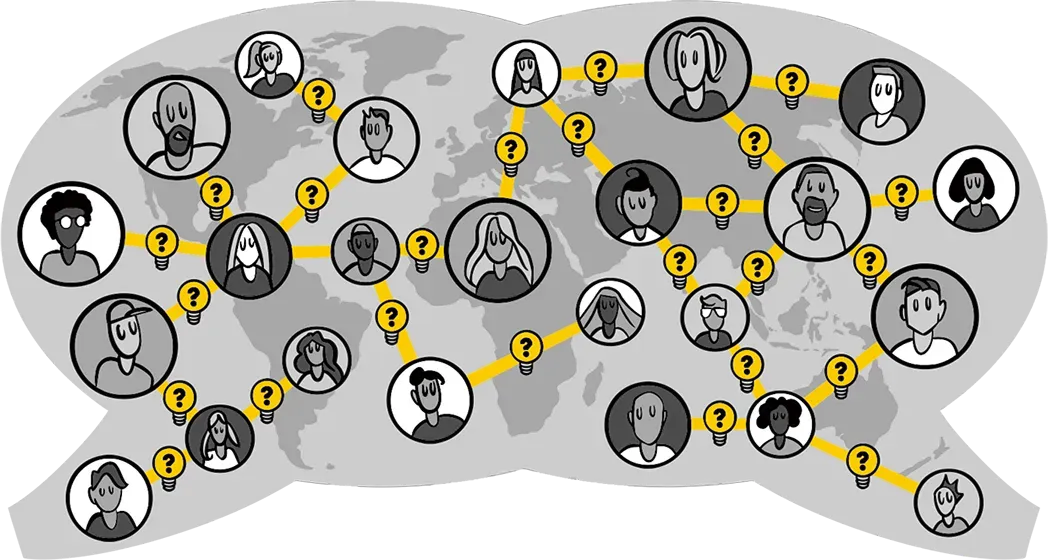Critically Examining Diverse Claims Thoughtfully
Tools for Understanding and Evaluating Arguments

The Power of Street Epistemology for Exploring Claims
Street Epistemology (SE) provides an effective framework for critically examining a wide variety of claim types, including descriptive, normative, empirical, personal, philosophical, and moral claims. By fostering respectful dialogue and employing thoughtful questioning, SE helps uncover assumptions, evaluate evidence, and explore the reasoning behind diverse arguments.
SE encourages intellectual humility and critical thinking, making it an invaluable tool for analyzing claims across a broad spectrum of topics. From discussing empirical evidence to reflecting on deeply held moral beliefs, SE facilitates constructive conversations that promote understanding and clarity. Learn more about insights from experts who discuss SE’s application to different types of claims.
Find the Best Fit for You
You've landed on a page about Street Epistemology, a way of helping people reflect on the quality of their reasoning through civil conversation. Take our free self-paced course called Navigating Beliefs or learn more about the organization behind these world changing projects.

Street Epistemology
International
The organization behind the development of the Navigating Beliefs course, supporting Street Epistemology's practice and offering resources for critical thinking and civil conversation.
Explore SE strategies for analyzing and engaging with different types of arguments.

Exercises for Exploring and Critiquing Claims
Analyzing claims thoughtfully requires practice, and SE provides structured exercises to enhance these skills. Activities like questioning normative claims, evaluating empirical evidence, and discussing philosophical arguments help practitioners develop a deeper understanding of the topics at hand. These exercises foster clarity, critical thinking, and respectful engagement.
For beginners, tools for questioning descriptive claims and analyzing personal beliefs offer accessible starting points. Advanced practitioners can focus on evaluating moral reasoning, examining strategic claims, or engaging in thoughtful debates on philosophical arguments. These practices encourage intellectual growth and promote meaningful dialogue across diverse claim types. Learn from insightful articles that explore SE techniques for navigating complex claims effectively.
Exercises for Fostering Learning and Growth
Teaching critical thinking and dialogue skills requires interactive and reflective exercises. SE provides activities that encourage students to question assumptions, analyze arguments, and develop reasoning abilities. From exploring logical fallacies to examining personal values, these exercises promote intellectual growth and improve interpersonal communication.
Beginner-friendly tools like questioning techniques and self-reflection exercises are ideal for introducing critical thinking concepts, while advanced strategies like belief analysis and empathy-building exercises challenge learners to deepen their understanding. These resources help educators create an engaging, inclusive, and transformative learning environment. Discover audio discussions that provide insights into using SE for teaching and learning.

Free Learning Course for Claim Analysis
Ready to examine diverse claims critically? The Navigating Beliefs course provides Street Epistemology tools to analyze descriptive, empirical, moral, and philosophical claims through thoughtful questioning and dialogue.
GO TO COURSE ➔



